Kurt Browning: "I just don't think that skating should be predictable."
July 15, 2012
By Tina Tyan
Photos © Tina Tyan, Suzie Herrmann, & Skate Oakville
Part 1
In June 2012, Kurt Browning turned 46. In the year leading up
to that birthday, he's performed in some 45 shows around the
world, co-hosted Battle of the Blades, commentated all the
major skating events for Canadian network CBC, taught a few
seminars, and choreographed and directed two different skating
tours. He's promoted Red Rose Tea's Share the Warmth campaign,
painted an Angry Bird for charity, released a children's
book, T is for Tutu, that he co-authored with his wife
(ballet dancer Sonia Rodriguez), judged a round of the Young
Artists' Showcase, and played in a few charity golf tournaments,
all while raising two young boys.
It wouldn't be a stretch to say that almost 20 years after turning pro, four-time World champion (1989-91, 1993) Kurt Browning is busier than ever. You don't have to get very far into a conversation with him to understand why. The Canadian skater overflows with energy, and he channels that energy into a passionate commitment to his sport.
Every now and then, Kurt has the opportunity to share his passion for skating with young skaters through seminars. Rather than trying to break things down technically, his seminars are designed to make kids appreciate their skating more and to step onto the ice with a greater consciousness of what they are doing.
"What I think is lacking, especially in skating in the ladies' event in Canada, is the joy. They're so hung up on what they're doing, and they're not doing that well. And I want the younger kids - if there are some out there who have a chance to compete - I want them to remember that it's supposed to be fun," he said.
Kurt believes that it is especially important for kids to enjoy their skating due to the sacrifices that they or their family often have to make for it.
He emphasizes to the kids in his seminars: "Hardly any of you guys are gonna ever get to compete at a high level. So it's even more important that you enjoy your own skating, and that you've given up the party, or you gave up that dress, or your parents gave up that extra car - whatever! Something was given up for you to learn how to do that single Axel. So you need to respect how hard it was to get that Axel. And have fun landing it! And enjoy your skating!"
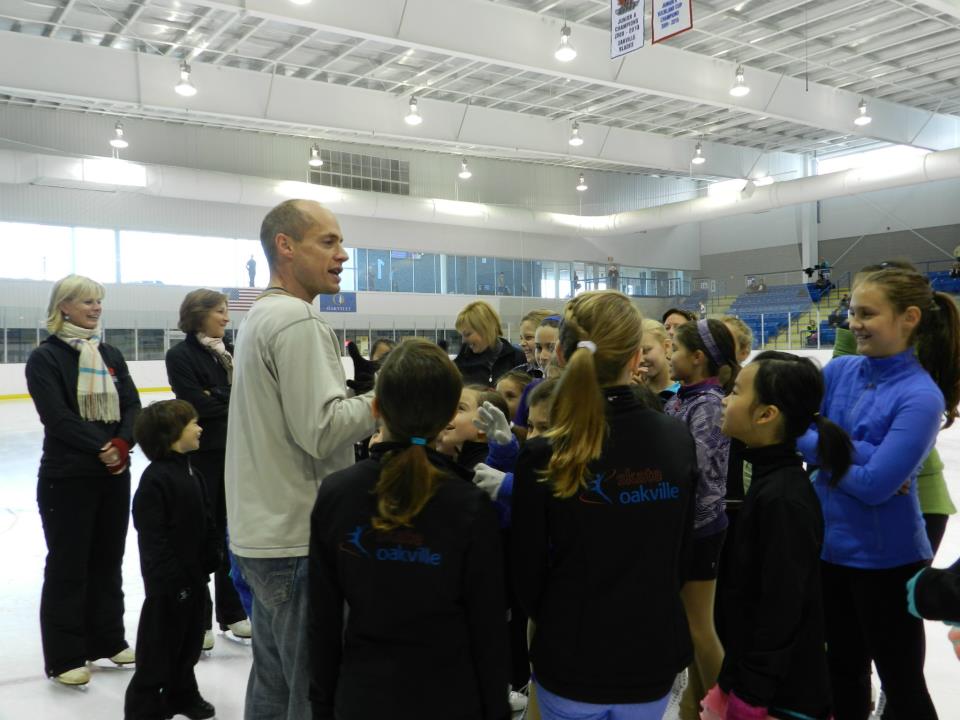
Photo courtesy Skate Oakville
A crucial part of that respect and enjoyment is awareness, of stepping out onto the ice with a desire to push yourself a little more, to try something a little different, to make each session special.
"How are you going to get better if you never try and curve a little bit more? [Ice dancer/choreographer] Shae-Lynn Bourne gets on the ice and every single day I watch her creating something new or just...she's curious. Kids are not curious about their skating. They're so happy to just be the same as they were yesterday," he said. "And I'm like, NO, let's tilt your arms. Tilt your arms, tilt your arms further! Bend your knees! WHOA! Did you ever think that you could do that?' And everyone's like, ‘I didn't really think I could do that!' It's because you never tried!"
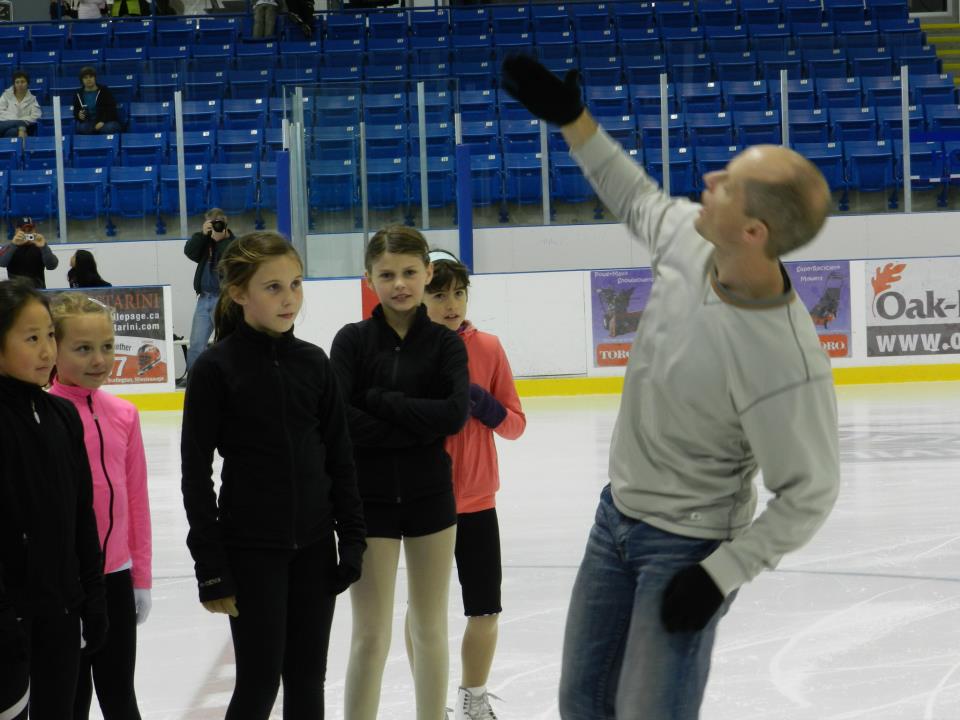
Photo courtesy Skate Oakville
Ultimately, he says, "My seminars are about [bringing out] the joy and the fun and the self-recognition in their skating."
As skaters rise in the competitive ranks and get more involved in the sport, challenges can arise. Figure skating demands a lot of time and sacrifice from young skaters and puts them in the position of being judged time and time again. They may have to give up many "regular" kid activities to pursue their goals. However, Kurt believes the benefits of participating in figure skating far outweigh the negatives.
Being judged constantly in competitive settings impacts the self-esteem of kids, but so does every day high school life, he says. Kids are constantly in situations where they question themselves, be it "somebody snickering you at the hallway in high school" or "I'm sorry, but he went and picked her to dance with him instead of me!" or "she's got a nicer shirt." He believes there are important lessons to be learned from competition.
"I hate to say it, but I think we're a little bit too much like, 'ok, we're going to go to school, and we're going to play, and everyone gets a medal!' No. Everyone doesn't get a medal. The first three people get medals, everyone else lost. And the kids need to learn that when it's your turn to have a moment, then it's special!" he said. "You work hard, you find something you're good at, you really worship and respect the integrity of the work that went into it, and then you win a medal. And it's finally your turn. Or you never win a medal, and it teaches you to appreciate something else. Life is not going to give you nice things, so you have to go take it!"
He's not worried that young skaters will lose balance in their lives by not being able to participate in "regular" everyday activities.
"How many kids are replacing the hours and hours of kids who go into sports with something that's as good as sports, to teach you how to lose, teach you how to win, how to show up at 7:00, how to be responsible to your coach, to your parents, to the other kids around you, to be a teammate, to stand up by yourself, all these things!" he said. "So I think, yeah you will miss out on things. I did. But, because I loved what I was doing, I was given two-fold back."
One of the biggest challenges skaters face as they mature is increased self-consciousness and self-awareness. Younger children are often better performers because they generally don't suffer from an overabundance of self-consciousness. But as they grow older, even a gregarious, outgoing personality like Kurt's can be hampered by too much self-awareness, even after years of performing.
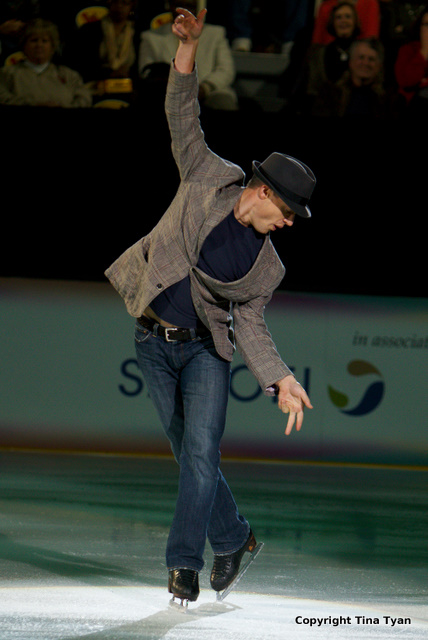
"The first year as a world title holder, I couldn't tie my shoes. I just thought everyone was staring at me. And a year before that I wanted everyone to stare at me. 'For God's sake, there's someone in the corner, I don't think that they saw me! I'd better do another triple Axel, make sure they saw it'," he laughed. "It was because I thought World champions didn't make mistakes, because the ones that I saw were all gods. When you won Worlds, you were Brian Orser [2-time Olympic silver medalist, 1987 World champion], or you know, Russians, strange people. They won Worlds, not me."
Learning to deal with self-awareness is an inevitable part of life, and Kurt believes that figure skating gives kids the strength to do so in other parts of their life.
"I tell skaters that if you can stand at center ice, and wait for music and dance to the music on skinny little blades wearing something that your mother made for you...if you can get through that, there ain't much else left out there that's gonna intimidate you," he said.
Even so, "I'm 20 years as a professional and self-awareness happens to me all the time. I skate 8 nights in a row with one or two little mistakes and then I have a really bad night because I didn't do it naturally, I did it trying to force it. It's that extra turn of a screw when you force it and you break the screw head off...So self-awareness can kill you. And then you have to get used to it. Because it's part of life, and it's great."
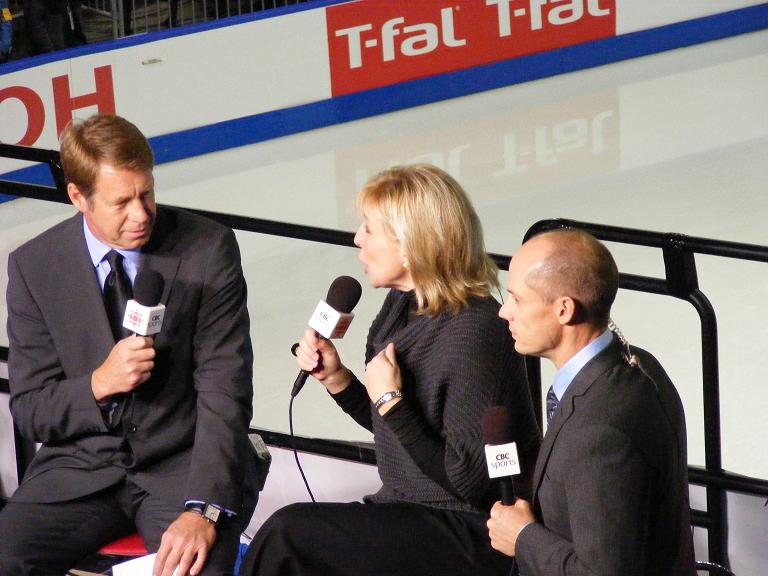
Photo courtesy of Suzie Herrmann
These days, Kurt has the chance to watch competitive skaters go through those moments of self-awareness up close, as a commentator for CBC. As a result, he often gets questioned about things that happen in competition, particularly regarding scoring system-related controversies. While he doesn't think the current scoring system is perfect, he does believe it lends credibility to the sport as a sport, and is better in many ways from a competitor's standpoint.
Some people complain about skaters who make multiple mistakes in their programs, but still score high or even win. Kurt likens the way skaters can accumulate points, offsetting the mistakes they make, to the scoring in any other sport.
"Like any sport, if you capitalize on the right moment, there you are," he said. "You are in the right place at the right time; you are buying yourself the ability to have mistakes later. 'They got scored on *three* times in the last five minutes!' Yeah, but they got 7 goals before that so who cares."
One of the biggest improvements the current scoring system has made, in Kurt's opinion, is that it gives skaters the chance to come from behind and still succeed.
"We need to have a way for these athletes to feel that they have a chance. And I love, absolutely love that you're in 6th place and you're looking at 8 points away, and now you're thinking...'I can get to 2nd'. In my generation, that was an impossibility. So, what do you like more? I personally think that it's really important that you can come 8th and still be, depending on how close you are to 1st, able to have a shot at [it]", he said.
From a viewer's perspective, though, he does acknowledge that the system doesn't reward moments as well as the old system, and understands why fans may be frustrated when a skater's performance captures the crowd or the night, but doesn't win the competition.
"I'm a romantic," he said, "so I rarely think about the points that much while I'm commentating or while I'm trying to be a fan or while I'm trying to enjoy a skater or a competition... I want to be moved by somebody."
For more with Kurt about skating in other countries, choreography, etc, go to part 2 .
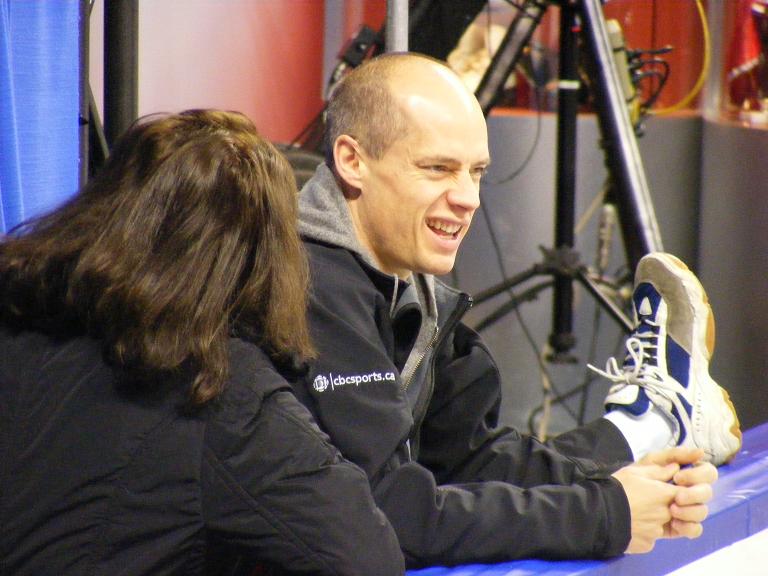
Photo courtesy of Suzie Herrmann



